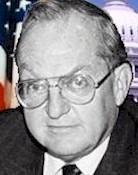
House Passes Copyright Damages Improvement Act
(August 3, 1999) The House of Representatives passed HR 1761, the Copyright Damages Improvement Act, by a unanimous voice vote on Monday afternoon, August 2. The Senate passed its version of the bill, S 1257, on July 1.
| Related Pages |
| Summary of Copyright Bills in the 106th Congress. |
| HR 1761 RH. |
HR 1761, the Copyright Damages Improvement Act, is sponsored by Rep. James Rogan (R-CA), and cosponsored by Rep. Howard Coble (R-NC). S 1257, the Digital Theft Deterence and Copyright Damages Improvement Act, is sponsored by Sen Orrin Hatch (R-UT), and cosponsored by Sen. Patrick Leahy (D-VT) and Sen. Charles Schumer (R-NY).
Both bills increase the range of statutory damages available under 17 USC 504 for copyright infringement. The limits have not been increased in over ten years.
Title 17, Section 504 is the federal statute setting remedies for copyright infringement. Under this section 504 an infringer is liable for either actual damages and lost profits of the copyright holder, or specified statutory damages. The copyright holder is allowed to elect the remedy. These bills increase these statutory damages.
 |
|
| Rep. Rogan |
If the copyright holder elects to receive statutory damages, then the basic rule under the current statute is that the court awards at least $500, but not more than $20,000, for one infringement. Under HR 1761 and S 1257, this range is increased to $700 to $30,000. Also, in cases where the copyright infringement is "committed willfully", the current maximum statutory damages is $100,000. These bills increase this to $300,000.
These bills also contain language that will aid copyright holders in actions against copyright infringers who use web sites to distribute pirated property.
The new clause reads:
"In a case where the copyright owner demonstrates that the infringement was part of a repeated pattern or practice of infringement, the court may increase the award of statutory damages to a sum of not more than $250,000 per work."
The House briefly debated the bill. Actually, no one rose to speak against it. Rep. Coble, Rep. Rogan, and Rep. Howard Berman (D-CA), the Ranking Minority Member of the House Courts and Intellectual Property Subcommittee, all spoke in favor of the bill.
Rep. Coble stated that "HR 1761 makes significant improvements in the ability of the Copyright Act to deter copyright infringement. It will increase the statutory damages available to copyright owners whose registered works have been infringed in an effort to deter infringing conduct. Copyright piracy is flourishing in the world."
 |
|
| Rep. Coble |
Rep. Coble continued: "With the advanced technologies available and the fact that many computer users are either ignorant of the copyright laws or simply believe that they will not be caught or punished, the piracy trend will continue. One way to combat this problem is to increase the statutory penalties for copyright infringement so that there will be an effective deterrent to this conduct."
Rep. Berman stated that "It has been well over a decade since we last adjusted statutory damages for inflation."
The bill passed by the House (but not the Senate version) also includes new language regarding the sentencing guidelines. As of the May 12 Courts and Intellectual Property Subcommittee hearing, the Justice Department had yet to bring one case under the No Electronic Theft Act, passed in 1997. The DOJ rationalized that one problem was that the Sentencing Commission had not established sentencing guidelines for the NET Act.
The House bill addresses the dereliction of the U.S. Sentencing Commission by setting a deadline for acting. However, it also addresses the content of the guidelines. They must be based upon the "retail price" and "quantity" of the infringed items. This is designed to prevent someone who pirates products that sell for $10,000, and then resells them for $50, from being sentenced as a petty thief.
| Related Story: Rogan Introduces Bill to Increase Damages for Copyright Infringement, 5/13/99. |
Rep. Rogan stated that "During the subcommittee's hearing on the 'Implementation of the NET Act and Enforcement Against Internet Privacy,' the concern raised about the lack of prosecutions being brought by the Justice Department and the Sentencing Commission's failure to address Congress' desire to impose strict penalties for violators."
"The Committee heard how the price that pirated material is sold for on the black market is often the value used for prosecution, not the actual value of the copyrighted item. This is wrong. My bill clarifies that the Sentencing Commission shall use the retail price and quantity of the infringed-upon goods as bases for determining their value," said Rep. Rogan.